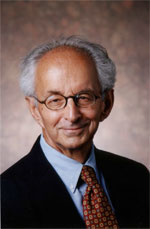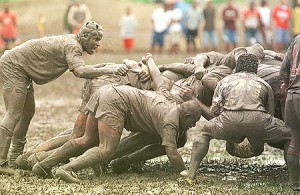Appreciating Our Professors: Professors Whitebread & Bergin
 Because most law professors do not attend graduate school in law, new law professors have to rely on their own memories of law school for models of how to teach. As a graduate student at Harvard in the late 1970’s I actually enrolled in an LLM course entitled Preparing for Law Teaching, which was taught by Al Sachs, then the dean of Harvard Law School. Every week a different distinguished Harvard Law Professor addressed the class on his -– there were very few “hers” at HLS in 1979 and none spoke to our class -– views on legal education and how one ought to teach as a law professor.
Because most law professors do not attend graduate school in law, new law professors have to rely on their own memories of law school for models of how to teach. As a graduate student at Harvard in the late 1970’s I actually enrolled in an LLM course entitled Preparing for Law Teaching, which was taught by Al Sachs, then the dean of Harvard Law School. Every week a different distinguished Harvard Law Professor addressed the class on his -– there were very few “hers” at HLS in 1979 and none spoke to our class -– views on legal education and how one ought to teach as a law professor.
However, when I began law teaching eight years later, I found myself relying not so much on this class, but on my own law student experience at the University of Virginia in the mid-1970’s. I did not particularly enjoy law school except for the classes in legal history, but I did find two professors particularly engaging. The two were Tom Bergin, from whom I had a year-long first year course in Property, and Charles Whitebread (pictured above), whom I had for upper-level courses in Trusts & Estates and Criminal Procedure.
Both were energetic instructors who infused their classes with a great deal of humor and commentary on the human condition. I think some of my classmates found Bergin to be a little too laconic and a tad vague -– Bergin was more interested in the sources of property rights than he was in the black letter rules of real property, and he did spend the first two weeks of the semester on Pierson v. Post, which was a case not included in our casebook -– but I and many other found his presentations exhilerating and looked forward to every class. Charles Whitebread was a consummate showman who was beloved by all of his students, and through his work with BAR/BRI became a nationally famous lecturer. His death this fall -– ironically just before a visit to Marquette –- was mourned by the entire world of legal education.
Although I have ended up teaching Property and Trusts and Estates most years, I am confident that I would have modelled my teaching on Bergin and Whitebread regardless of what I ended up teaching. As it turned out, they provided me with a treasure trove of property and T&E jokes, obscure legal references, and faux harangues that I have been able to draw upon in my own classes for more than twenty years.
 Thomas Bergin. This is actually the grandfather of the Tom Bergin I had for Property. Both men had strong ties to Yale, and I am sure that Prof. Bergin would approve of this substitution.
Thomas Bergin. This is actually the grandfather of the Tom Bergin I had for Property. Both men had strong ties to Yale, and I am sure that Prof. Bergin would approve of this substitution.


